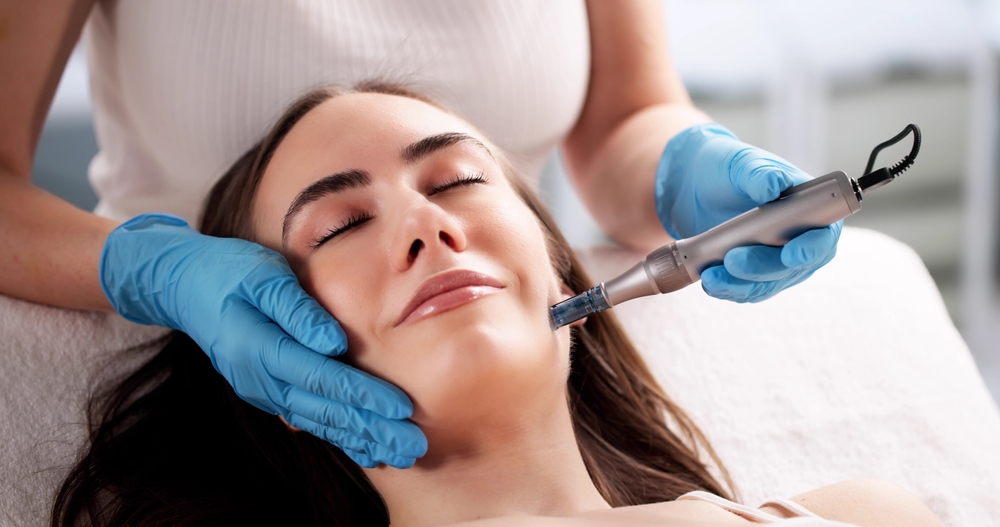The Scottish Parliament has agreed to the general principles of the Non-surgical Procedures and Functions of Medical Reviewers (Scotland) Bill.
The proposed legislation’s main purpose is to regulate the non-surgical cosmetic procedures industry, following growing concerns surrounding the rise of botched procedures that risk patient safety.
This bill follows the UK government's announcement in August, which proposed a licensing scheme to regulate aesthetic and non-surgical cosmetic procedures.
As it stands, the bill proposes that a selection of defined non-surgical procedures will only be permitted to be carried out in a registered healthcare setting.
The bill also plans to strengthen the regulations surrounding minors receiving these procedures, prohibiting any individuals under the age of 18 from having any non-surgical cosmetic procedures.
Latest developments
On Thursday, 6 January 2026, the Scottish Parliament agreed to the general principles of the Non-Surgical Procedures and Functions of Medical Reviewers (Scotland) Bill.
The Bill is now progressing to Stage 2, allowing MSPs to submit amendments to the current principles. Any suggested amendments will be considered and debated at the meeting scheduled for 24 February 2026, before proceeding to the next stage.
In the final stage, any remaining amendments will be considered before Parliament votes on the Bill, with a simple majority required for it to pass.
What procedures will be included in the bill?
The bill aims to regulate some of the most common non-surgical cosmetic procedures, and follows a consultation carried out in 2020, which found that 98% of respondents supported stronger regulation of procedures by practitioners who are not qualified healthcare professionals.
The following procedures will be regulated by the bill:
-
Ablative laser treatments
-
Cellulite subcision
-
Dermal microcoring
-
Intravenous procedures
-
Thread Lifts
The Scottish Government will have powers to expand or amend the list of regulated treatments.
This means there could be changes to the list of procedures covered by the bill, who can provide these procedures, training and qualification requirements, and the creation of additional offences.
What are the permitted premises?
The Bill also makes it a crime to provide a non-surgical procedure in non-permitted premises.
The bill defines the permitted premises as the following: an independent hospital that is registered with Health Improvement Scotland (HIS); an independent clinic registered with HIS, where the services are provided by a registered medical or dental practitioner, a registered nurse or midwife who is an independent prescriber or a pharmacist independent prescriber; or GP and dental practices which provide NHS services and registered pharmacies, which are exempt from the requirement to register with HIS.
Breaching the bill will be a criminal offence
HIS will have the powers to enter and search premises where there is a suspicion that these procedures are being carried out in breach of these offences.
Under this bill, it will be a criminal offence for a person to provide any of these procedures without a “permitted premises”; and for a person to provide these procedures to anyone under 18.
“Our aim is to ensure there is robust and proportionate regulation in place so that anyone who chooses to have these procedures can do so safely,” explains Minister for Public Health and Women’s Health, Jenni Minto.
“We have worked with a range of stakeholders, including business owners, healthcare professionals, non-healthcare practitioners, environmental health officers, and professional regulators to develop our proposals.
“Our priority is to address the public safety concerns that exist in this sector, whilst ensuring businesses that may be impacted are able to access support.”
Scottish Parliament's Health, Social Care and Sport Committee recommendations
This progression follows the Scottish Parliament's Health Social Care and Sport Committee recommendment that the Scottish Parliament agrees to the general principles of the Non-surgical Procedures and Functions of Medical Reviewers (Scotland) Bill.
Upon recommendation, the Committee acknowledged concerns expressed by professionals currently providing non-surgical procedures. Recommending that the Scottish Government provides appropriate support and guidance to help aesthetic professionals seamlessly transition into abiding by the new regulatory framework.
The Committee has also voiced concerns over a lack of clarity around requirements for clinical supervision of those procedures covered by the Bill, including minimum qualification requirements for those providing supervision and the scope of their clinical and managerial responsibilities.Therefore calling for a staged implementation, allowing professionals to meet the new requirements, while enforcing sanctions upon practitioners who show no interest in complying with the law.
Other criticisms raised include concerns that the current sanctions set out would not deter irresponsible practice, calling on the Scottish Government to introduce stronger penalties for offences committed under the Bill.
The Committee’s report seeks assurances that, in the short term, the Scottish Government will commit additional funding to enable HIS to enforce the Bill properly from the outset.
“Our Committee believes patient safety must always come first and that’s why we are supportive of this Bill which will provide much needed regulation of the non-surgical procedures industry,” shares the health, social care and sport committee convener, Clare Haughey.
“We fully back provisions making it illegal for under 18s to access these procedures and believe the Scottish Government should work with the UK Government to improve and standardise training and qualifications so all providers meet a minimum standard.
“We acknowledge that there will be many practitioners who are concerned about the impact this new regulatory framework may have on their businesses. That’s why we’re calling on the Scottish Government to provide appropriate support and guidance to help responsible providers make a successful transition and continue operating in compliance with the law."
Industry Response
“We are absolutely delighted after years of supporting and advising the Scottish Government that this Bill has finally been published. We are also grateful to have played an instrumental part in the revisions ahead of publication, both through our own submission, as well as my contribution as a part of the Scottish Government's Interventions Expert Group,” shares the British Association of Beauty Therapy and Cosmetology’s CEO and chair, Lesley Blair MBE.
“We are thankful that our recommendations were accepted and the Bill now reflects a proportionate approach to regulation without impacting client safety and professional standards, which is imperative for the future of the sector in Scotland.
“This is a very positive step forward and BABTAC will continue to support and advise both the Scottish and the wider UK government to ensure a safer beauty industry.”
The Scottish Government has stated that the Bill will be progressed during the current session of the Scottish Parliament, which is scheduled to conclude in May 2026.
You might also like to read... Government announces new regulations for aesthetic and non-invasive procedures



